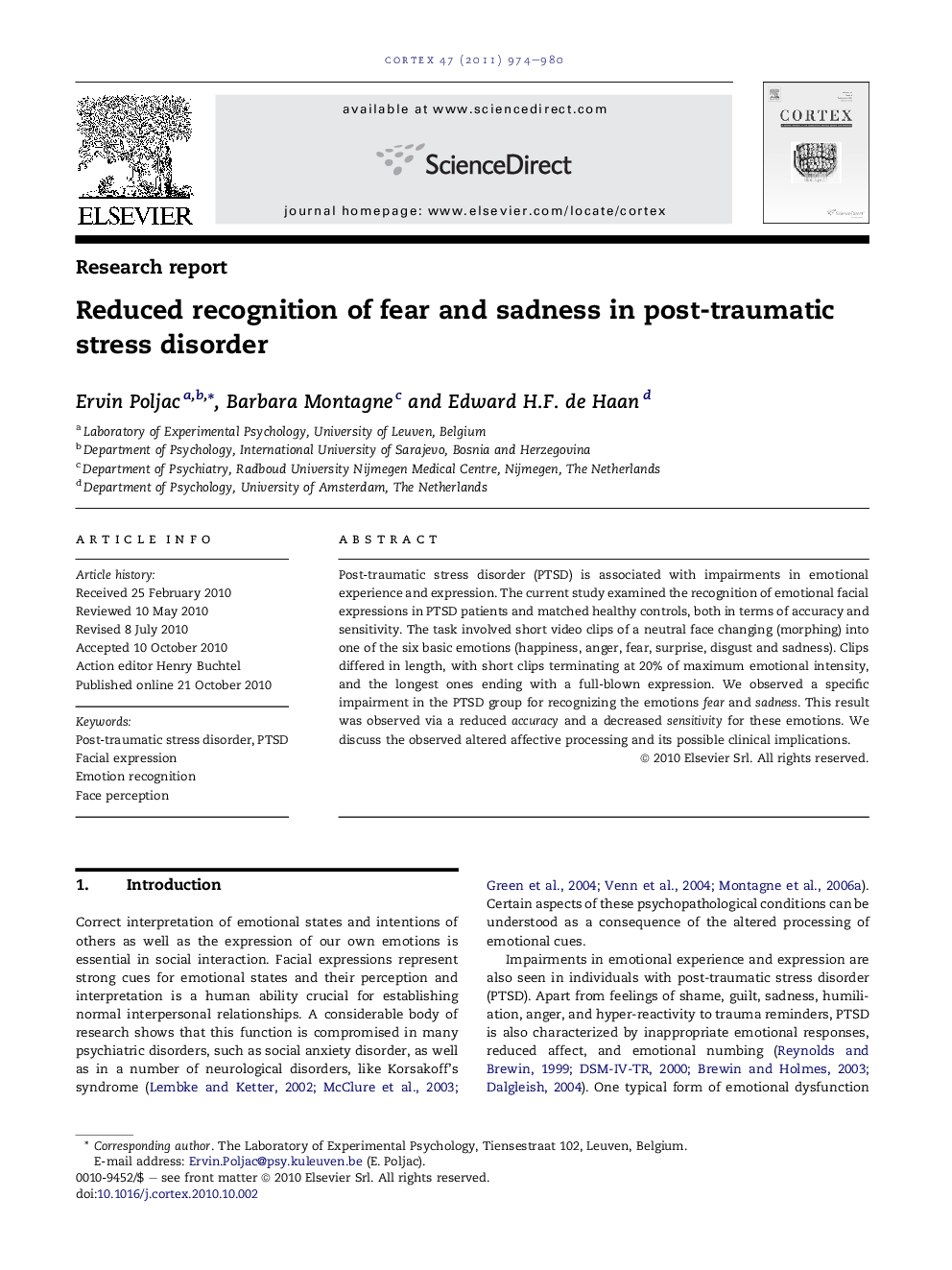| Article ID | Journal | Published Year | Pages | File Type |
|---|---|---|---|---|
| 942294 | Cortex | 2011 | 7 Pages |
Post-traumatic stress disorder (PTSD) is associated with impairments in emotional experience and expression. The current study examined the recognition of emotional facial expressions in PTSD patients and matched healthy controls, both in terms of accuracy and sensitivity. The task involved short video clips of a neutral face changing (morphing) into one of the six basic emotions (happiness, anger, fear, surprise, disgust and sadness). Clips differed in length, with short clips terminating at 20% of maximum emotional intensity, and the longest ones ending with a full-blown expression. We observed a specific impairment in the PTSD group for recognizing the emotions fear and sadness. This result was observed via a reduced accuracy and a decreased sensitivity for these emotions. We discuss the observed altered affective processing and its possible clinical implications.
